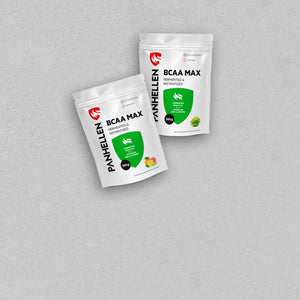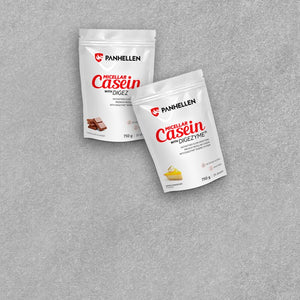FAT BURNING

WOULD YOU BURN FAT? FORGET ADVERTISING PROMISES, LISTEN TO SCIENCE!
Fat burning is a common topic, the media and the Internet bombard us with "better than better" offers, but unfortunately, scientific facts and information about the true mechanism of weight loss are lost in the advertising noise. Does "fat burning" even exist? Are trendy weight loss trends that promise quick, spectacular changes healthy? Is it really such a big deal to mobilize our fat reserves? Are dietary supplements effective? We are looking for the answer to these.

WHAT IS "FAT BURNING"?
Very simply: burning fat is actually nothing more than using fatty acids as energy (scientifically called lipolysis). The primary, most easily mobilized nutrients are carbohydrates . Fat is a fuel that is difficult to mobilize, but provides a lot of energy. Our fat stores store on average 50-100 thousand calories of energy, and our carbohydrate stores (in the form of glycogen) approx. 2,000 calories. However, adipose tissue can accumulate not only in case of a diet rich in fat, but also excess, unused carbohydrates can be stored in fat cells. The body is also able to produce energy from proteins , but since the body cannot store protein outside of our muscles, it begins to break down its own proteins (ie, our muscles) and use them as energy. This condition is to be avoided even for an average person, not to mention athletes!
WHAT MOVEMENTS CAN WE BURN FAT WITH?
In a state of rest and with low-intensity exercise (e.g. sedentary work, slow walking, walking), we obtain energy mostly from adipose tissue. As a result of physical activity, the body's energy consumption changes. Depending on the time and intensity of the activity, we mobilize the body's carbohydrate and fat stores in different proportions. During a few minutes of physical activity (e.g. sprint), we gain energy almost exclusively from carbohydrates, however, as we increase the time and intensity, the so-called free fatty acids are also used - and all lipids are also released from the fat pads, so the real "fat burning" begins. (Carbohydrate stores begin to empty after about 30-50 minutes. However, they will never be completely empty!) If we reduce carbohydrate intake during our diet (or just before training), the body will be forced to reach for fat stores first.
WEIGHT LOSS, FAT BURNING WITHOUT MUSCLE LOSS
Regarding the theoretical background of lipolysis (fat burning), there is one more thing to keep in mind: weight loss ("fat burning") or slimming is done well if only the excess is lost, and our muscles are not destroyed! So it is not enough to watch the scale or mindlessly deprive ourselves of food. "Fat burning", real, lasting weight loss doesn't happen overnight - just like the extra pounds you've accumulated didn't come off in 1 month... It's no use losing 2-3 kilos a week if the weight lost comes from muscles and water. 70-80% of body shaping, including weight loss, is determined by our diet. In addition, of course, regular physical activity is also extremely important. Both basic pillars must be met for the result to last.
FAD DIETS PROMISING QUICK WEIGHT LOSS DO NOT BRING REAL CHANGE
Even if there is a short-term result, it probably won't last. Let's note: don't look at our new diet as a strict diet or weight loss! Let's take it as learning, as a long-term sustainable lifestyle. We learn and get to know the body's reactions and the properties and composition of certain raw materials and foods. We also learn new recipes and new kitchen technology tricks along the way.
THE KNOWLEDGE OF THE CORRECT WEIGHT LOSS DIET:
Or how can we know if we are doing the diet right.
1) Fat-free body mass (i.e. muscle) does not decrease significantly.
2) There is no metabolic disorder or health damage.
3) There is no excruciating feeling of hunger.
4) Adequate supply of energy, nutrients, vitamins and minerals is ensured.
HOW MUCH DO WE EAT DURING A WEIGHT CURE, I.E. DURING THE FAT BURNING PERIOD?
In a healthy diet (when there is no need to burn fat, i.e. not on a diet), we recommend that carbohydrate consumption be approx. It should be 50-55% of the daily calorie intake, and the fat intake should not exceed 25-30% of the total energy intake. The remaining fraction (15-25%) is represented by proteins.
If we want to lose weight (so in the case of dieting, "fat burning"), these ratios are slightly modified: max. 25% goes to fats, 45-50% to carbohydrates and 25-30% to proteins. Note: 30% may seem like a lot from the point of view of protein intake, but we should not lose sight of the fact that almost all food and raw materials contain protein, such as the protein content of a grain is also included in the daily protein intake. Since every person is different, with unique needs, generalizations should not be made. Exactly how much energy, carbohydrates, fat, and protein we need is determined by our individual needs and lifestyle. It is therefore not worth following prefabricated sample diets! What works for one person may not work for another.
FEATURES OF THE FAT BURNER - WEIGHT LOSS - DIET:
- (relatively) low in energy,
- (relatively) low in carbohydrates (more precisely: you have to pay attention to the right quantity, quality and timing),
- relatively high in protein,
- low fat,
- no added sugar or alcohol,
- rich in fiber, liquid,
- varied.
FAT BURNING WITH DIETARY SUPPLEMENTS?
In addition to a well-prepared diet and exercise program, we can also choose dietary supplements that can support weight loss and "fat burning". It should be noted that if the first two pillars are not fulfilled, we can try any miracle drug, the expected effect will probably not be achieved. At the same time, a well-chosen dietary supplement can greatly contribute to weight loss.
First of all, supplements that can help reduce the amount of food and thus calories consumed can be useful for us. Plant fibers with a sufficiently proven and safe effect , e.g. have products containing chitosan or glucomannan (also known as devil's tongue extract) (it is best if both are included in the dietary supplement).
Chitosan and glucomannan are non-digestible fibers (plant parts) that have many beneficial physiological and biological effects: they can help reduce the absorption of sugars, improve the insulin sensitivity of cells, bind and reduce the absorption of fats and cholesterol. In addition, they reduce the digestibility and therefore the absorption of food.
Furthermore, they have the special property of being able to bind multiples of their size in the form of water. As a result, they swell in the stomach, which means that the eaten food stays longer in the stomach, thus prolonging the feeling of satiety and fullness.

Attention! Fibers are only able to show this good quality if we increase our liquid consumption by at least 4-6 dl per day. Otherwise, digestive complaints may occur: bloating, cramps, constipation. Other supplements that help in weight loss are grouped under the so-called are "fat burners".
The most well-known fat-burning formula is caffeine, which has been proven to help the utilization of fat and fatty acids as energy, i.e. it increases "fat burning". In addition, it is also known as an energizer: it can help maintain energy levels during training, increase mental and physical performance, and improve coordination. So, a caffeine-containing energizer can "by the way" also contribute to fat burning.
Preparations containing L-carnitine and related compounds are also very popular. Choose a supplement containing L-carnitine tartrate, which is the compound with the highest L-carnitine content currently available on the market. Not all carnitine preparations contain L-carnitine tartrate, which is worth paying attention to. It is safe to use and can help you lose weight when consumed alone, but you should know that this is not a scientifically proven fact at the moment, although it can be confirmed by experience. However, research also proves that with other fat-burning substances, e.g. in combination with the aforementioned caffeine, the effect of carnitine on fat burning can be effectively increased. L-carnitine also plays a role in improving endurance, supporting the immune system, and can increase the body's oxygen supply and promote regeneration.
Learn more about carnitine, read "Carnitine can be dangerous and harmful!" our blog post.













